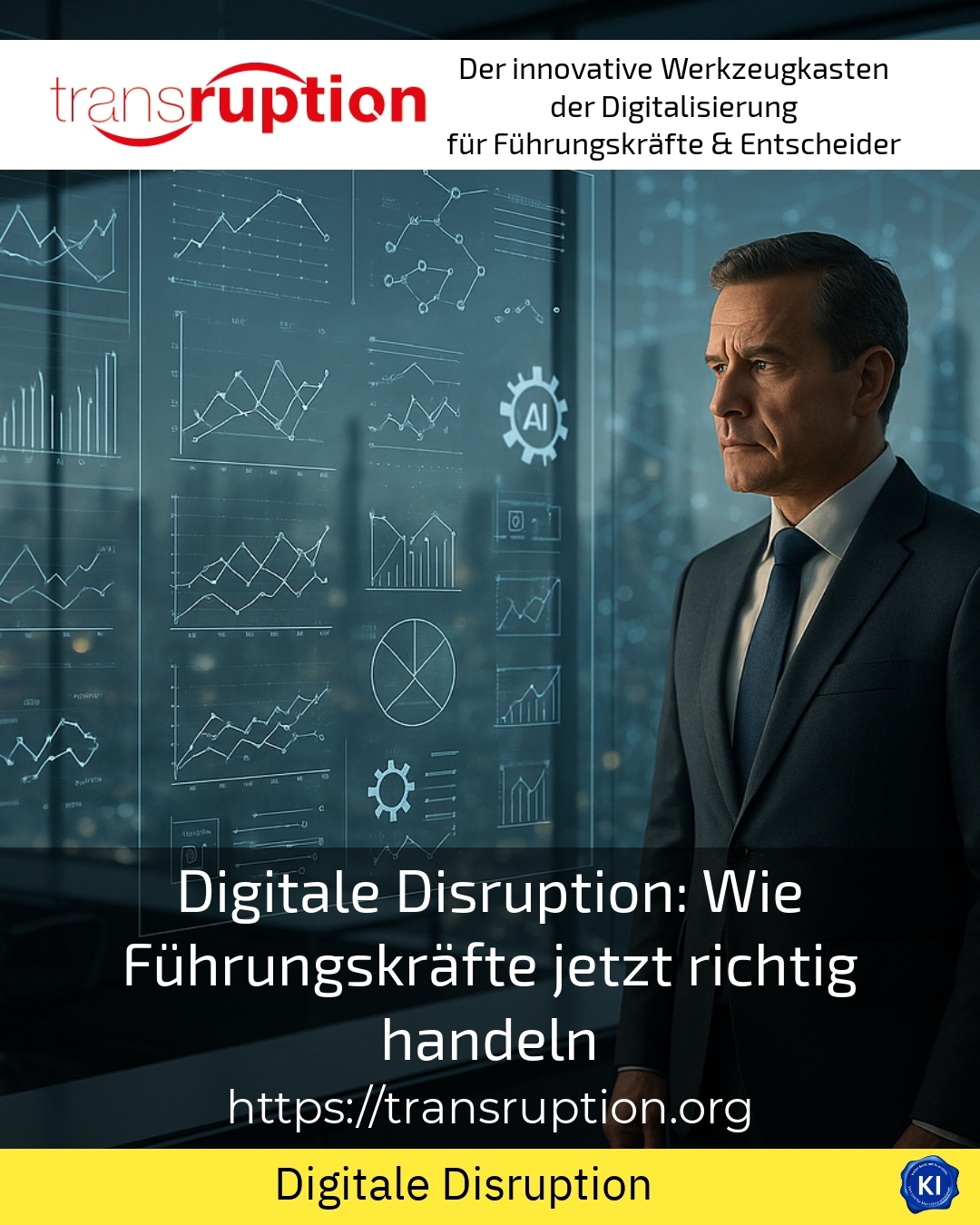The digital world is changing rapidly. Digital disruption is bringing with it profound upheavals that pose major challenges for companies. Managers are at the centre of a change that goes far beyond pure technology. Targeted and courageous action is now needed not only to accompany this process, but to actively shape it.
Understanding digital disruption - the basis for successful leadership
Digital disruption describes the radical transformation of business models through new digital technologies. It replaces existing products, services and processes with innovative alternatives. This creates new markets and opportunities while challenging established structures. Examples can be found in the healthcare sector, where telemedicine and AI-supported diagnoses are changing traditional practice processes, or in the financial sector, where FinTechs are reshaping traditional banking services. Digital disruption is also shaping the automotive industry with the emergence of autonomous vehicles and mobility services.
For managers, this means that they need to understand change and develop a clear vision for the future. Only in this way can teams be optimally managed and companies master the market changes.
Practical examples from various industries
In the retail sector, digital platforms such as marketplaces and personalised online offers are helping companies to meet customer expectations. In the media industry, streaming services are replacing traditional TV channels and changing consumer habits. The logistics industry is also being fundamentally reshaped by automation, drone deliveries and IoT vehicle fleets.
Leadership in times of digital disruption: competences and recommendations for action
In practice, managers often report that flexibility and strategic thinking are among the most important skills. Clear communication is also crucial in order to reduce employees' fears and resistance. An example from industry: change agents support the digital conversion of large production facilities and mediate between technicians and management. This creates acceptance and support for the necessary changes.
Another example from the service sector shows how pilot projects gradually introduce new digital tools and are optimised based on feedback from the teams. This reduces risks and promotes successful implementation.
In practical terms, this also means that managers should involve digital-savvy employees as multipliers at an early stage. At the same time, it is important to strengthen experienced specialists who enjoy the trust of the team. Their support ensures a balance between innovation and tried-and-tested working methods.
BEST PRACTICE at the customer (name hidden due to NDA contract) shows how a large mechanical engineering company trained its managers in digital skills through targeted transruption coaching. This enabled them to accompany the changeover process with employees in an agile and empathetic manner and successfully establish innovative digital processes.
Tips for managers on dealing with digital disruption
These recommendations support managers in the digital transition phase:
- Take an active stance: develop a long-term strategy that takes into account both technological innovation and cultural change.
- Introduce regular further education and training courses to promote digital expertise in the team.
- Communicate openly about the opportunities and risks of digitalisation in order to build trust.
- Use agile methods to be able to react flexibly to changes.
- Encourage creative thinking and involve employees as change agents.
In the manufacturing industry, agile project teams that develop prototypes in short cycles and quickly incorporate customer feedback have proven their worth. In the media industry, digital innovation processes are positively received by editorial teams thanks to transparent communication.
The role of transruption coaching in digital disruption
Many managers are looking for support to successfully master the complex projects associated with digital disruption. This is where transruption coaching comes in: It helps to strengthen individual leadership skills and quickly align teams with the new requirements.
For example, clients from the healthcare sector report how they were able to lead their teams safely through digital change thanks to targeted coaching. Those responsible in the public sector also benefit by improving communication strategies in order to anchor digital projects on a broad basis.
Another practical case arose in the insurance sector: By introducing automated processes, the coaching helped to dispel fears and establish new ways of working. Employees felt involved right from the start, which significantly increased acceptance.
My analysis
Digital disruption is not a passing fad, but a fundamental upheaval that constantly challenges companies. Managers must take action now to make their company fit for the future. Digital skills, strategic clarity and empathetic leadership are crucial here. Practical support, such as transruption coaching, helps along the way by providing impetus and guiding change processes. Companies that utilise these opportunities can successfully reposition themselves and remain competitive.
Further links from the text above:
How managers master digital disruption
The secret of digital disruption
Digital disruption - glossary and leadership
For more information and if you have any questions, please contact Contact us or read more blog posts on the topic TRANSRUPTION here.
















